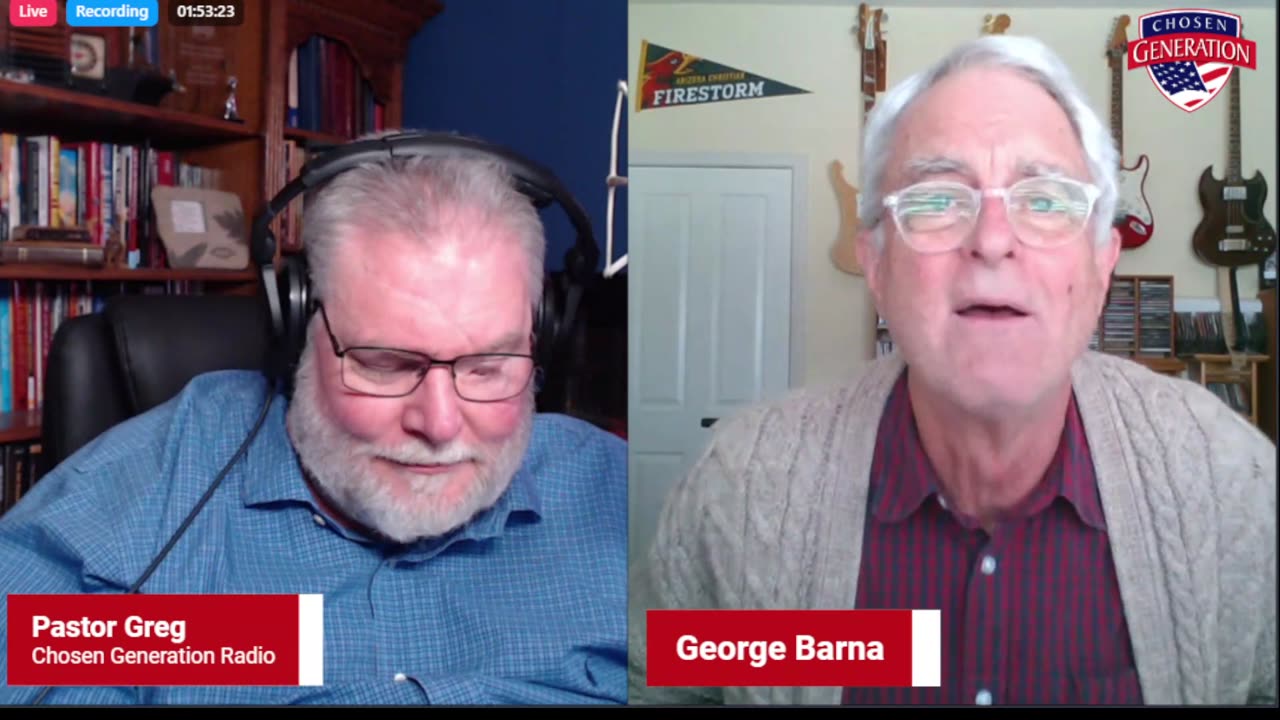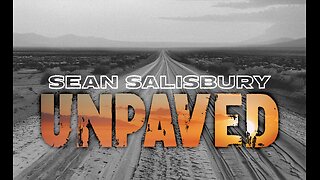Premium Only Content

Polls show mzny AZmericans st5anding on Shifting Sands
George Barna one of the best and most reliable Pollsters shares the latest findings.
As increasing attention shifts to the approaching 2024 election, many Americans hope that the
next leader of the nation will restore unity to our divided country. A new survey conducted by the
Cultural Research Center at Arizona Christian University, however, suggests that such an outcome is
improbable.
Regardless of who the candidates are, and who gets elected, the survey underscores that the
foundational beliefs of Americans are so fragmented that Americans are presently incapable of
developing a united perspective on who America is and how we will move forward together.
In fact, the results from a new national research study reveal a startling degree of disunity in the
foundational perspectives among the American public, according to veteran researcher George Barna.
The greatness and longevity of the United States is partly attributable to a shared understanding and
common pursuit of core characteristics such as truth, purpose, success, responsibility, and community.
Those attributes, and many others, were examined in the American Worldview Inventory 2024, the
annual worldview survey conducted with a representative national sample of adults under the
direction of Barna at the Cultural Research Center.
The American Worldview Inventory (AWVI 2024) examined the national incidence of 14 different
worldviews. The discord in people’s philosophies of life was underscored by the fact that only one
worldview – Syncretism – is embraced by at least 5% of the population.
The overwhelming majority of American adults—92%—embrace a worldview known as Syncretism – a
fusion of disparate ideologies, beliefs, behaviors, and principles culled from a variety of competing
worldviews into a customized blend.
Biblical Theism (aka the biblical worldview) was a distant second in popularity, with a 4% incidence.
Next were four philosophies of life that are each embraced by 1% of the adult population: Mormonism,
Secular Humanism, Nihilism, and Postmodernism.
-
 3:26:32
3:26:32
Chosen Generation Radio: Where No Topic Is Off Limits and Everything Filtered Through Biblical Glasses
16 days agoFinding Courage Movie Event Palm Springs 011322
161 -
 1:17:27
1:17:27
Awaken With JP
9 hours agoThe Current Thing: Tesla Protesting - LIES Ep 82
104K42 -
 1:07:08
1:07:08
Sean Unpaved
6 hours agoNFL Free Agency Rolls On! MLB Spring Training Heats Up along with 3x World Series Champ Dave Stewart
62.7K3 -
 2:10:15
2:10:15
Right Side Broadcasting Network
11 hours agoLIVE REPLAY: White House Press Secretary Karoline Leavitt Holds Press Briefing - 3/11/25
154K43 -
 2:06:00
2:06:00
The Quartering
9 hours agoTrump Goes NUCLEAR On Canada, Blasts Massie, Harry Potter Race Swap, Man Humiliated On TV Show
109K62 -
 1:03:09
1:03:09
The White House
9 hours agoPress Secretary Karoline Leavitt Briefs Members of the Media, Mar. 11, 2025
107K70 -
 1:07:03
1:07:03
Winston Marshall
8 hours agoEXCLUSIVE : Oliver Anthony On Life After ‘Rich Men’, The Christian Counter Culture and The Elites
71.1K11 -
 1:44:47
1:44:47
Russell Brand
10 hours agoDigital Censorship & Political Warfare: X Attacked, Rand Paul Rebels, Free Speech on Trial – SF551
165K20 -
 LIVE
LIVE
tastylive
9 hours agoLIVE Stocks, Options & Futures Trading with the Pros! (Market Open -> Close & More) March 11th, 2025
118 watching -
 1:35:59
1:35:59
Simply Bitcoin
10 hours ago $4.23 earnedTrumps Bitcoin Embrace TERRIFIES The EU | EP 1200
60.9K8